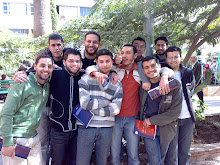Peptic ulcer is a general term that includes both gastric ulcer and duodenal ulcer. Smoking, excessive caffeine (tea and coffee) intake of alcohol, too many spices, stress and pain-killer such as aspirin may cause or aggravate peptic ulcer.
In Ayurveda, peptic ulcer is defined as "Parinaam school, that is to say that the pain is felt at any time after consumption of food. Ayurvedic texts further dividing it into different types according to the predominant dosha affected and treatment is also proposed accordingly. Thus, in "Vata" type of medicated enema To (sesame) oil, Bala (Sida cordifolia) and Mahanarayan oil (containing mainly Asparagus racemosus) oil is recommended. Mild purgation appear in "Pitta" type using Aragwadh (Cassia fistula), Draksha (Vitis vinifera), Amalaki (Emblica officinalis) and Nishottar (Operculina turpethum). In "Kaphaj" type vomiting, we recommend the use of sugar cane juice or salt and water.
It is important to note that the "detoxification" seems more appropriate in terms of hyperacidity or "LRD-Pitta, which is usually observed improvement in these procedures. These are best avoided in patients with confirmed, or medical history highly targeted to peptic ulcer, due to the small but known risk of perforation and other complications.
Ayurveda is very specific and effective oral treatment of peptic ulcer. Some drugs are well known: Shankha Bhasma, Praval Panchamrut, Kamdudha and Sutshekhar Rasa. Herbal medicines are known to be effective in this condition are: Amalaki (Emblica oficinalis) Guduce (Tinospora cordifolia), Yashtimadhuk (Glycerrhiza glabra), Saarland (Hemidesmus indicus), Usheera (zizanoides vetiver), Bhunimbadi (mainly containing Andrographis paniculata) qadha (decoction) and Patoladi (comprised Trichosanthes dioica) qadha. Usually, complete accident is received within four to eight weeks.
In order to prevent relapse of symptoms, the patient is treated with Shatavari (Asparagus racemosus containing mainly) Ghruta, Panchatikta Ghruta, Pippali (mainly containing Piper longum) Ghruta etc. In refractory patients, the total time of treatment may be necessary to repeat a full refund.
It best to avoid irregular or aggravating some reason. Diet of wheat, rice, beans, sugar, honey, kushmand (white gourd melon), padwal (pointed gourd), Bhend (wife finger), bottle gourd, coconut, dadim (pomegranate) and milk is recommended. To (sesame), black grams, kulith, garlic cloves, yogurt, spices, fried and fermented food products are best avoided.




No comments:
Post a Comment